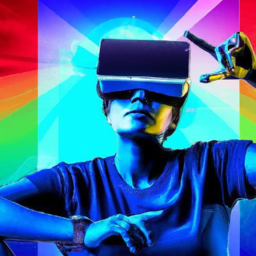Incorporating Augmented Reality into Your Marketing Strategy
As technology continues to evolve, businesses are constantly looking for new and innovative ways to engage with their customers. One technology that has been gaining popularity in recent years is Augmented Reality (AR). AR has the ability to bridge the gap between the digital and physical worlds, creating an interactive and immersive experience for consumers. It opens up a whole new realm of possibilities for businesses to connect with their target audience in a unique and memorable way.
What is Augmented Reality?
Augmented Reality is a technology that superimposes digital information such as images, videos, and animations onto the real-world environment. Unlike Virtual Reality, which creates a completely immersive experience, AR enhances the real world by overlaying digital elements onto it. This technology can be experienced through mobile devices, smart glasses, or even wearable gadgets.
Why Should Businesses Consider AR in Their Marketing Strategies?
Augmented Reality offers numerous benefits to businesses when it comes to marketing. Here are a few reasons why you should consider incorporating AR into your marketing strategy:
- Enhanced Customer Engagement: AR provides a highly interactive and immersive experience, allowing customers to engage with your brand in a whole new way. By bringing your products or services to life through AR, you can capture and hold your target audience’s attention, resulting in increased engagement and brand loyalty.
- Memorable Brand Experiences: AR has the ability to create memorable experiences for customers. By incorporating interactive and personalized AR elements into your marketing campaigns, you can leave a lasting impression on your audience, making it more likely for them to remember and share your brand.
- Improved Product Visualization: AR allows customers to visualize and experience your products in a virtual environment. Whether it’s trying on virtual clothing, seeing furniture in their own space, or test driving a virtual car, AR can help customers make informed purchasing decisions by providing a realistic and interactive preview of your products.
- Increased Social Media Engagement: AR content is highly shareable and can generate buzz on social media platforms. By creating AR experiences that encourage users to share their interactions, you can broaden your brand’s reach and attract new customers.
- Competitive Edge: By incorporating AR into your marketing strategy, you can differentiate your brand from your competitors. AR can help you showcase your innovative and forward-thinking approach, positioning your brand as a leader in your industry.
How Can Businesses Leverage AR in Their Marketing Strategies?
Now that we understand the benefits of AR, let’s explore some ways businesses can leverage this technology in their marketing strategies:
Interactive Product Demonstrations:
AR can be used to provide interactive product demonstrations, allowing customers to visualize and experience your products in a virtual environment. For example, a cosmetic brand could create an AR app that allows customers to virtually try on different shades of lipstick or eyeshadow.
Virtual Fittings and Try-ons:
AR can be used in the fashion and retail industry to offer virtual fitting rooms and try-ons. Customers can use their smartphones or tablets to see how clothing or accessories would look on them without physically trying them on. This can reduce the need for returns and improve customer satisfaction.
Location-Based AR Campaigns:
AR can be utilized to create location-based campaigns that engage customers in specific physical locations. For example, a restaurant could use AR to offer discounts or special promotions to customers who check-in through their AR app when they visit the restaurant.
Virtual Tours and Experiences:
Businesses in the travel and hospitality industry can use AR to offer virtual tours and experiences. Hotels could create AR apps that allow customers to explore different room layouts or navigate through the hotel facilities before making a booking decision.
Brand Storytelling:
AR can be used to bring brand stories to life through interactive and immersive experiences. By creating AR content that showcases the history and values of your brand, you can connect with your audience on a deeper level and foster brand loyalty.
Conclusion
Augmented Reality has the potential to revolutionize the way businesses market their products and services. By leveraging AR in your marketing strategy, you can create engaging and memorable experiences for your customers, ultimately driving customer loyalty and increasing brand awareness. So, don’t wait any longer – start exploring the possibilities of AR and get ready to take your marketing strategy to the next level!











